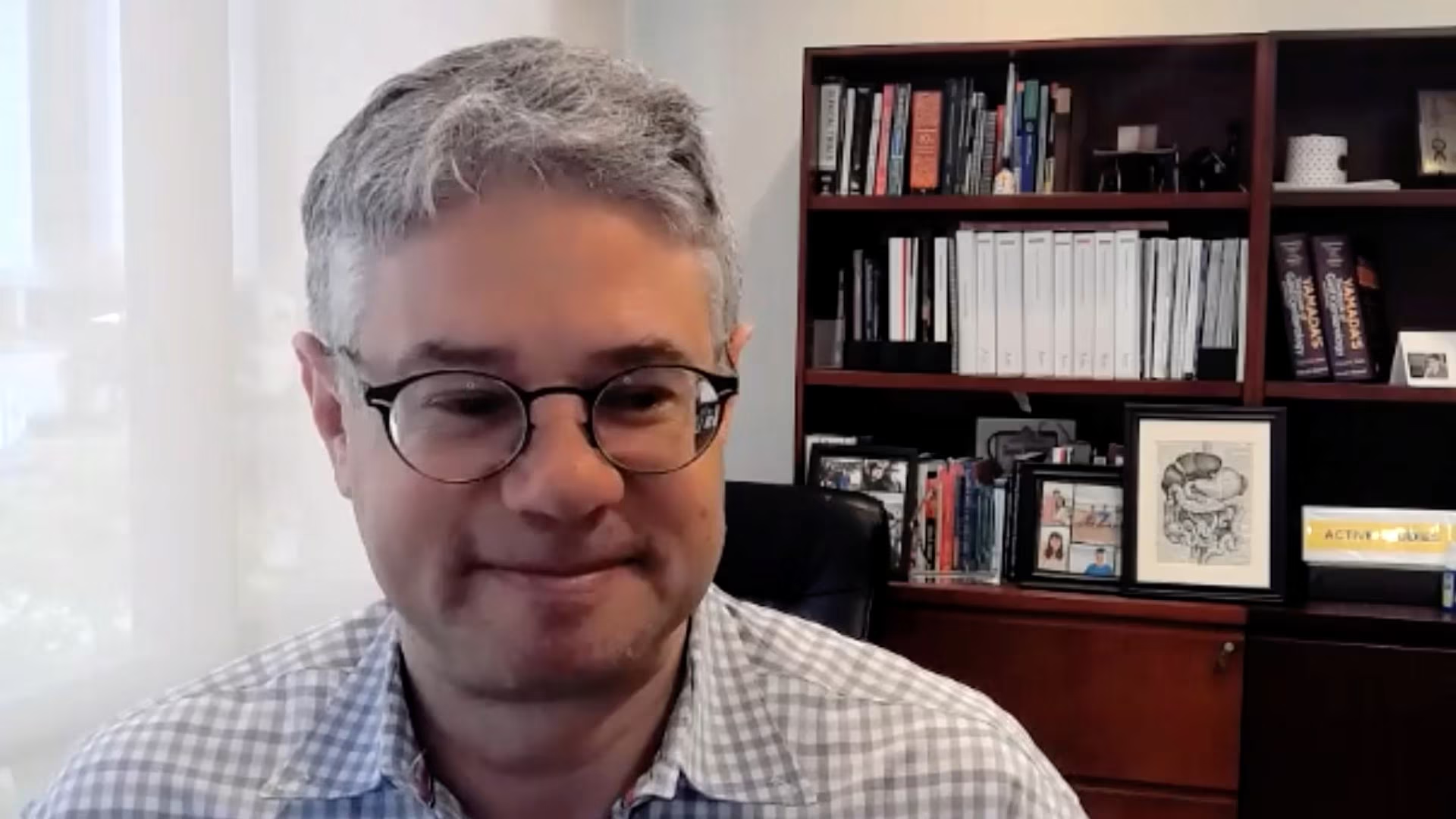Digestive Disease Week took place between 6-9 May, in this touchIMMUNOLOGY interview, we caught up with our Expert Faculty member Prof. Gil Y. Melmed (Cedars-Sinai, Los Angeles, CA, USA) around his personal highlights from this year’s conference including non-pivotal clinical trial data analysing established inflammatory bowel disease (IBD) therapies such as vedolizumab, data around the Kono-S anastomosis in Crohn’s disease and artificial intelligence in IBD.
Questions
- What were your personal highlights from this year’s DDW meeting? (0:18)
- What clinical data looked promising from this year’s conference? (3:10)
Disclosures: Gil Melmed discloses consulting for Abbvie, Amgen, Arena, Boehringer-Ingelheim, Bristol-Myers Squibb, Celgene, Janssen, Gilead, Genetech, Pfizer, Samsung Bioepis, Takeda, Shionogi, Prometheus Labs, Techlab, Fresenius Kabi, and Viatris; and receiving grant/ research support from Pfizer.
Support: Interview and filming supported by Touch Medical Media Ltd. Interview conducted by Victoria Jones.
Filmed in coverage of Digestive Disease Week 2023.
Click here for more content on digestive disorders.
Transcript
What were your personal highlights from this year’s DDW meeting? (0:18)
For me, there were several highlights at the meeting. I think we did see some data for non luminal or non pivotal trials of existing drugs for different aspects of inflammatory bowel disease that I think are very important when it comes to clinical practice. So, for example, there was data presented from the Ernest trial, which was looking at the vedolizumab in patients with pouch inflammation. Now, patients with j-pouches are excluded from typical clinical trials, and there’s very limited data to support the use of specific medications, certainly in a controlled clinical trial. So there was data presented on mucosal healing of patients in a randomized controlled trial of vedolizumab compared to placebo in patients with j-pouches. This is a follow-up on previously presented data on the clinical efficacy of vedolizumab in this population, and that demonstrated significant advantages in mucosal healing.
We also saw data that looked at an operative technique, the Kono-S operation for Crohn’s disease, an ileocecal resection, demonstrated that in a randomized controlled trial patients who received this Kono-S anastomosis, this new surgical technique actually did better, both clinically and in terms of their likelihood for a re-operation within the subsequent three years compared to the traditional side aside anastomosis that’s performed. So this is actually a very exciting area as well in terms of not just drug therapy, but also surgical therapy that is common, unfortunately still in Crohn’s disease, that we perhaps have an introduction of a new technique that may optimize outcomes after surgery.
I was also very excited that there was a lot of aspects to do with AI and and how we might apply AI in our field in inflammatory bowel disease. There were several studies that were presented at DDW on the topic of AI in GI in general and in inflammatory bowel disease, specifically a couple that caught my attention was a study out of Israel that looked at a virtual reality in patients receiving colonoscopy, as a way of distracting them without sedation for colonoscopy.
There were also several studies using AI to assess inflammatory bowel disease activity from stool images that patients may perhaps take on their smartphone. I think that we have a lot of potentially very exciting areas that AI can be applied in GI and in inflammatory bowel disease, only the beginning of which we’re starting to see at our international conferences, and I’m sure there will be a lot more to come.
What clinical data looked promising from this year’s conference? (3:10)
Well, additional clinical data that was presented included some data for the efficacy of upadacitinib in patients with perianal Crohn’s disease, looking at fistulas and fissures, which often, by the way, are not looked at in clinical trials and demonstrated that upadacitinib had a significant benefit for patients both for fistula closure, as well as for fissure healing in patients with perianal Crohn’s disease relative to placebo. So, I think this is a very common question that we deal with clinically. This is a subset of clinical trial data that were that have been presented for Crohn’s disease, which serve as the basis for upadacitinibs approval for Crohn’s disease, but looking at specific patient population like those with perianal disease, which unfortunately are still a very common, is a common manifestation and a common complication of Crohn’s disease. Now, we have some data being presented and emerging. I think we’re going to see more of this data in with this drug and with other drugs that allow us to be more confident for our patients with perianal Crohn’s disease, which medications that we prescribe may also benefit that aspect of their condition.
Subtitles and transcript are autogenerated.






